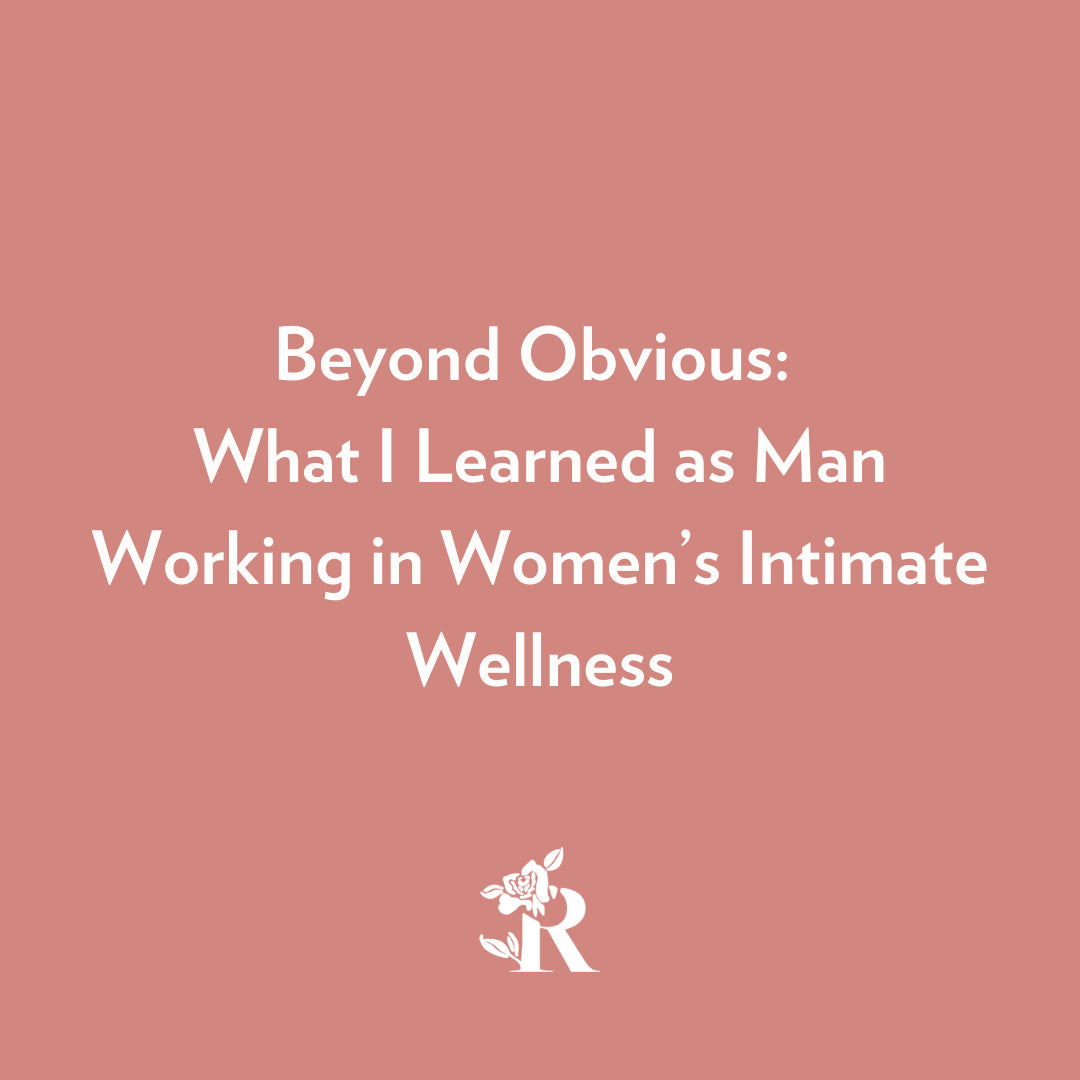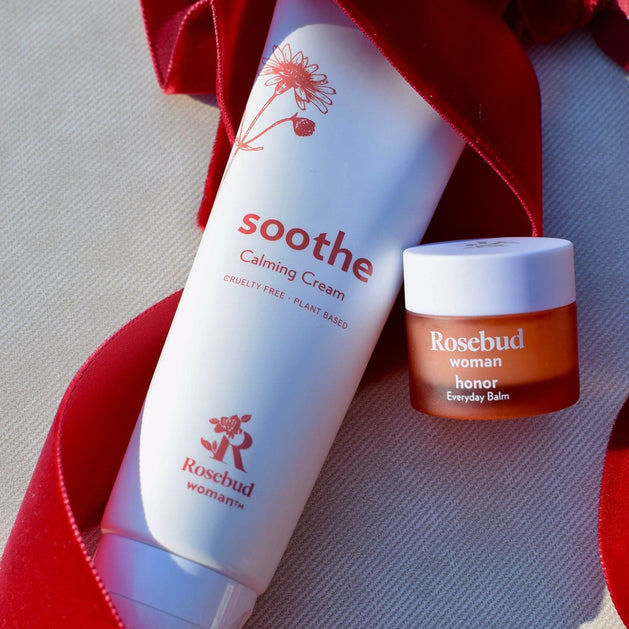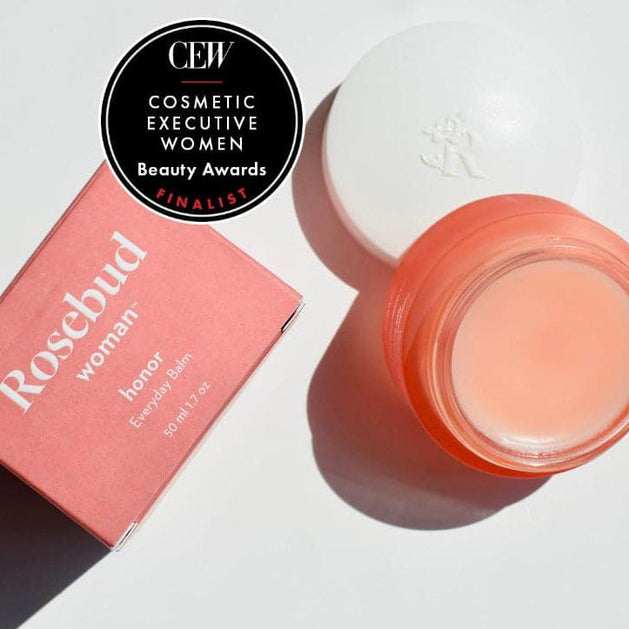Beyond Obvious: What I Learned as Man Working in Women’s Intimate Wellness
Hi everyone, I'm Kyle, the COO of Rosebud Woman.
I’m a male human—and for the past two years, I have been fully immersed in the industry of women’s intimate health and wellness. I have recently been reflecting on what I have learned while building a company dedicated to supporting women, their bodies, and their cycles. All of what I share will most likely be obvious to women, but I guarantee that it is not obvious to most men.
Normalizing Women’s Anatomy
The most profound change for me has been the normalization of a woman’s anatomy. I have developed a comfort around this subject that was not present before. Vaginas are normal. Vaginas are everywhere.
Most of the men I’ve encountered, if conversations stray into the territory of women and women’s bodies, they are almost immediately, reflexively sexualized. Especially on the subject of vaginas. To this day, when I explain my work—even to older, successful, educated men—their reaction is nervous laughter: Hahahaha vagina. Some men get over their embarrassment by going into swagger mode, talking in detail about what they would do to “it” (i.e. the vagina). Or they turn away, thinking “this is none of my business.” There’s not a lot of middle ground.
Men need to understand that vaginas don’t have two modes: sex or no sex. They have a thousand different moods.
My work has allowed me to participate in conversations about women’s anatomy, and appreciate those nuances. I can hold a conversation about things I’ve never personally experienced, and comfortably speak words I might never before have said. There is no need to be embarrassed when talking about vaginas, no reason to laugh, and no reason to sexualize them at every possible turn. (In the right good heart space, of course, sexualizing our bodies can be powerful, flirty, and fun—but only when there is mutual consent).
Engaging in thoughtful dialogue with the women in our lives about their cycles and sexual health requires curiosity, compassion, and maturity. The ability to normalize women’s anatomy— without losing the wonder of it— has been not only powerful, but incredibly important to my friendships and relationships.
Women Have a Wide Variety of Things to Deal With That Men Don’t
Men, in general, do not have the motivation to develop the kind of close relationship to their bodies as women do. On any given day, for example, the only thing I might have to do to make my crotch feel more comfortable is adjust my ballsack. Or, if my lower belly aches, I might spend a minute wondering what I had to eat a few hours prior.
Women, on the other hand, will have genital sensations and maintenance tasks that a man will not. These might include hot flashes, menstrual cramps, or the feeling of moisture between their legs—maybe an intimate and worrying awareness that something might be leaking through their pants. Is the pain in their lower abdomen the result of food, menstruation, stress, exercise, polyps, or something else, like endometriosis.
Unlike men, women have a whole checklist around their intimate health issues, compelling them to develop a greater awareness and relationship with their body over time.
There seems to be a cultural mindset among men, however, that says “Your maintenance is not my problem.” What a woman needs to do to maintain her personal comfort throughout a day is considered, from a male centric perspective, as “extra” or “wasted” time. But the “extra” is relative to being a man. For a woman, this is just normal, necessary time.
And part of this social contract, I’ve noticed, is the expectation that women hide and keep secret their maintenance needs throughout the day—and in general.
As a direct result of my work, I now feel more witness to how women feel the need to hide their care than I did before. The secret signals women have developed to take care of each other while operating in a man’s world are both compassionate and cooperative, and men would do well to learn from this shared sphere of solidarity
Being a Non-Shaming Ally
I started a fraternity in college, and have had a lot of experience with locker room talk. This is a performative thing done by both genders to entertain friends and push boundaries. There is an instinct among men, for instance, to gain status with other men by establishing exactly how they would perform for a woman sexually, or how they would excel in the dating scene. During a guy’s night out, conversations can get really explicit. Nuance and respectability are very quickly lost when men begin talking about women and spiral downward to one-up each other.
There have been times in the past when, as a participant or a bystander to increasingly raunchy scenarios, I didn’t have the vocabulary or confidence to redirect such discussions, and be respectful of women when they were not present. Particularly without moral grandstanding, or appearing to be “holier than” or explicitly shaming a friend or friends. Shaming a person will not plant the seeds of change.
But a diplomatic intervention is not moral grandstanding. We are never better than anyone else. Now, when I am in a position to participate in such banter, there is more opportunity for me to invite wonder, consent, and appreciation into the conversation.
What is fascinating to me is how elevating the conversation creates a rapt attention that can lead to inquiry. The moment you start providing vocabulary and information that is unfamiliar about women, men listen. They have a desire to learn. The curiosity is there; it just has to be invited and nurtured.
Knowing the difference between, and not going red in the face about, the external folds and creases of the labia or the internal mechanics of the cervix allows for a more informed, wholesome, and empowering sexual life. Here is a sampling of words and topics that no man should allow to intimidate them in conversation: vagina, vulva, labia, clitoris, uterus, cervix, perineum, dryness, chafing, odor, swelling, burning, bleeding, stretching, scarring, tampon, pad, period, menstruation, menopause, hormones, orgasm, masturbation... and more. All are an invitation to great mystery, marvel and imagination.
Such knowledge and acceptance can, and will, change society. If men could share my experience, and learn to feel less shame and embarrassment when discussing women’s bodies, it would swiftly result in a safer, more equitable society. Most men will never literally walk in women’s shoes—but we can all learn to respect our most intimate differences, and be completely comfortable—and conversant—around them.
I also want to say something concerning women and invisibility. As the only guy on our team, I am for the first time in the minority. And now, during every other environment I go into—whether board meetings, sporting organizations, investor dinners—I notice when women aren’t in the room. When women are not part of the conversation, men in general don’t acknowledge this. Today, I can speak to those issues with more empathy.
Beginner’s Mind
“Even a fool, when he holdeth his peace, is counted wise.” As one of the few (if only) men present for conversations on product, strategy, brand messaging, and more, it was imperative that I learn to listen more and speak less. This was a growth edge for me, as I always have something to say.
I do not have any first-hand experience for most of what we discuss—whether it’s about messaging, product use, problems we are solving for, and so on. So absorbing as much information as possible from the women around me is imperative to my understanding of why we make certain decisions during our product development, outreach campaigns, and charity partnerships.
This has also enabled me to become better at asking meaningful questions. I will never know what it’s like to live as a woman, so inquiring about the kinds of challenges unique to women is a cornerstone of my attempt to empathize. Listening more and speaking less allows me to better understand why we are doing what we do.
Older Women and Sex
I’m in my early 30s, and I typically think of women in their 20s and 30s as viable mates. This may sound dumb, but there was a point when I thought that women, once their fertility days have ended, don’t want to have sex anymore. I have since learned that most women want to have sex during their whole lives, just as older men do. I think that, because we oversexualize young women, we undersexualize older women. That is a loss for all parties involved, and detracts from relating authentically as people age.
There is a wealth of knowledge, wisdom, and experience older people have about intimacy and sex. We have much to learn from them—and what we do learn will help us better relate with our partners, of any age, in the long haul.
There is so much for men to learn. We just need to start caring enough to listen. I feel privileged to be getting an inside look at women's intimate concerns, and to be a bridge-builder.



























